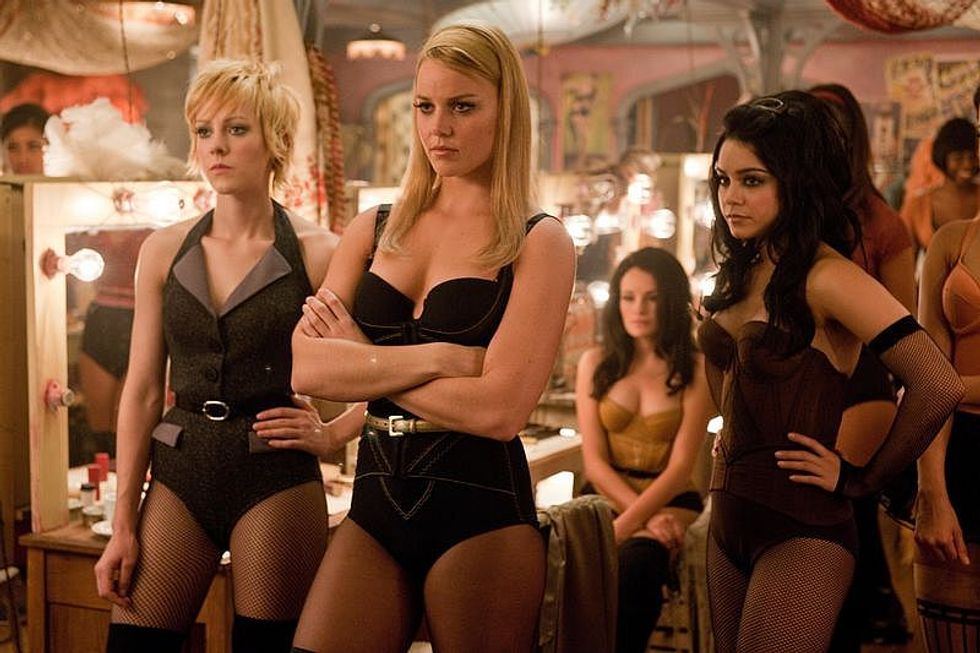Having joined the ranks of today’s most promising young directors after first crafting music videos for Morrissey and Dionne Farris, Zack Snyder has skillfully married his passion for song with his inclination to grandiose cinema.
Whether thrusting us into a world on the brink of apocalypse against the haunting strains of Johnny Cash’s “The Man Comes Around” in Dawn of the Dead (2004), or opening his adaptation of Alan Moore’s Watchmen (2009) with a condensed century of superhero history backed by Bob Dylan’s “The Times They Are a-Changin’,” Snyder has a Midas touch in the soundtrack department.
He puts it to good use in Sucker Punch, an elaborately staged tribute to girl power featuring amped-up covers of classics by The Beatles (“Tomorrow Never Knows”) and The Stooges (“Search and Destroy”), among others. The music is front and center here, lending each scene an insistent layer of urgency.
That, perhaps, is the saving grace of Punch, in which Snyder, working for the first time off his own screenplay, co-authored with newcomer Steve Shibuya, seems more interested in providing an experience than a fully functional narrative. Lacking in this hyperthyroid adventure, involving five girls imprisoned and abused in a Vermont mental ward, is a satisfying account of their actual trials.
The movie is, in fact, a two-hour metaphor within a metaphor, one more obvious (and also less intriguing) than the visual and philosophical booby traps Christopher Nolan laid out in last year’s Inception. Here, Snyder deals purely in the fantastical, allowing his characters by escape their dismal reality in a dreamworld of gravity-defying swordfights and deafening shootouts.
The girls cope by re-imagining themselves as young women enslaved in a brothel. Rebellion against their captors sends them hurtling into yet another series of alternate realities, pitting them against conjured-up enemies – Nazis, dragons and cyborg samurai – plucked from mythology and the pages of history.
How effectively their exploits, envisioned by the cherubic Babydoll (Emily Browning, of Lemony Snicket’s A Series of Unfortunate Events), relieve the drudgery of life at the Brattleboro asylum is hard to tell, though it’s a safe bet that none of the girls get to patrol the hallways with automatic rifles.
What Punch strives to capture, more than the grisly details of their suffering at the hands of a tyrannical orderly (Oscar Isaac), is the emotional thrust of their experience – the pain, the desperation, the desire to be free. The movie’s video-game structure lends itself more to dazzling spectacle than dramatic interpretation, but the story is not without soul.
Whether the movie overcomes its limitations is debatable, though Snyder’s cinematography is as accomplished as his use of music. Here, the director has fashioned a slick commercial product, a collection of explosive vignettes featuring enough two-fisted, provocatively clad starlets (including Abbie Cornish, Jena Malone and High School Musical's Vanessa Hudgens) to drive the boys wild and leave the girls pumping their fists.
Yet Punch, like 300 (2006) and Watchmen, has larger ambitions, a far cry from the shoot-’em-up retreads usually reserved for the dog days of summer. Its emotional impact is blunted, a regrettable consequence of Snyder’s unconventional storytelling, but his vision is compelling enough to compensate, barely.





















